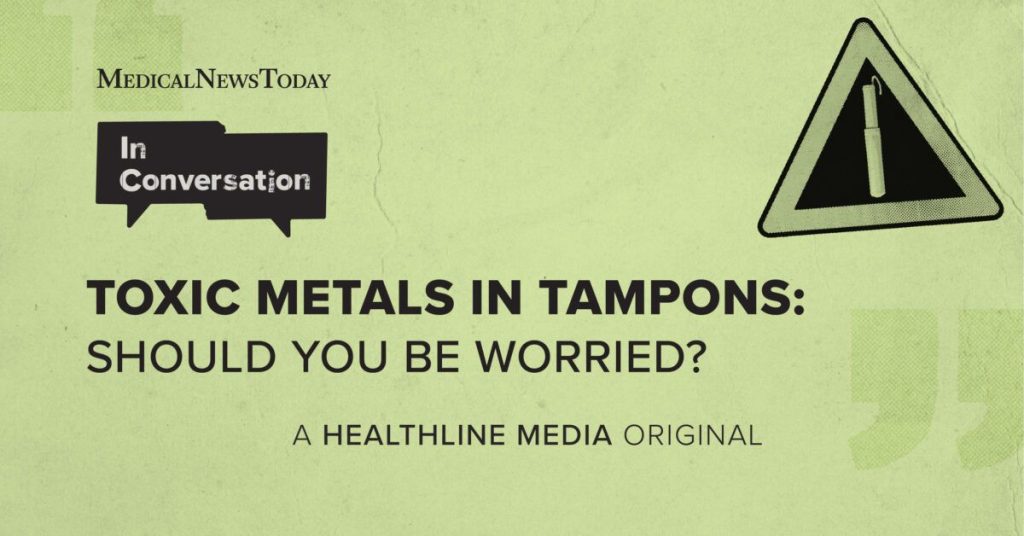A recent study has found traces of heavy metals, including arsenic, cadmium, and lead, in some brands of tampons. While not all of these metals are harmful, some can be toxic to human health. With the average person who menstruates using over 11,000 pads in their lifetime, concerns have been raised about potential exposure to harmful chemicals. The study found 16 heavy metals in 14 tampon brands across the U.S. and the U.K., raising worries about the safety of menstrual products in the long term.
The presence of heavy metals in tampons has sparked questions about how they end up in these products and whether regular exposure could impact reproductive health over time. To delve deeper into these concerns, Medical News Today editors Maria Cohut and Yasemin Nicola Sakay invited Anna Pollack, a professor of Global and Community Health at George Mason University College of Public Health, onto their podcast In Conversation. Pollack’s expertise lies in studying the link between environmental chemical exposures and fertility, pregnancy, and gynecologic health. She was also involved in a systematic review that explored the chemicals found in menstrual products and their potential effects on endocrine health.
One of the main factors driving concerns about heavy metal contamination in tampons is the fact that these products are used monthly, often for several decades, and are inserted into a very sensitive and absorbent part of the body. With this in mind, consumers naturally want to know if they are being exposed to harmful substances. The study revealing the presence of heavy metals in tampons has added to existing anxieties about the safety of these essential menstrual products.
Organic tampons have often been touted as a safer alternative, at least in terms of reducing chemical exposure. However, the study’s findings suggest that even organic tampons may contain heavy metals. This has raised further questions about the efficacy of organic products in protecting against harmful chemical exposure. It is essential for consumers to be informed about the potential risks associated with various types of menstrual products and to make choices that they feel comfortable and safe using.
The impact of heavy metal exposure, especially in products like tampons that come into direct contact with sensitive areas of the body, is an area of concern for public health experts. Studying the potential effects of these metals on reproductive health over time is crucial for understanding the risks associated with using certain menstrual products. With more research and awareness, consumers can make informed decisions about the products they use and advocate for safer, more transparent manufacturing practices in the menstrual hygiene industry. Through ongoing studies and conversations like the one featured on the In Conversationpodcast, the goal is to increase public awareness and encourage greater scrutiny of the products people rely on for essential health and hygiene needs.


